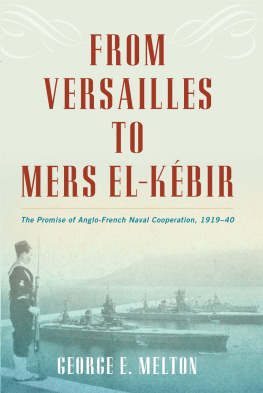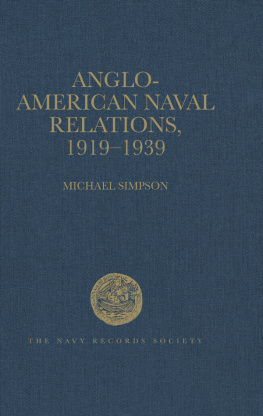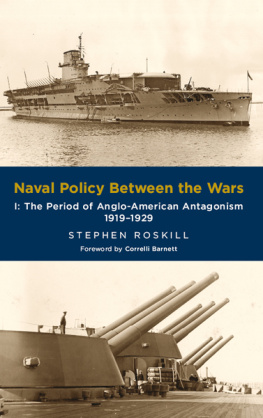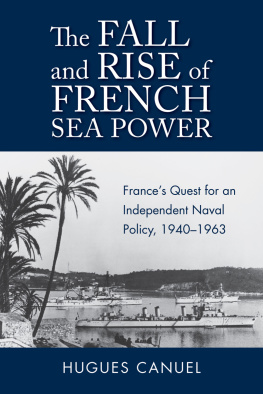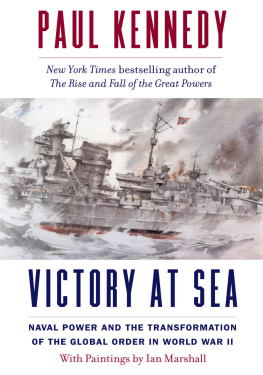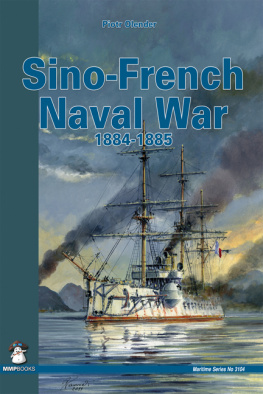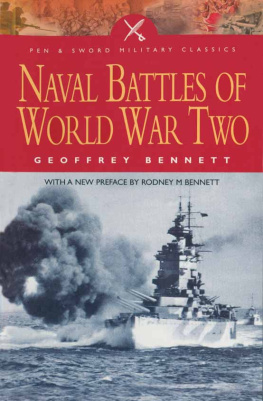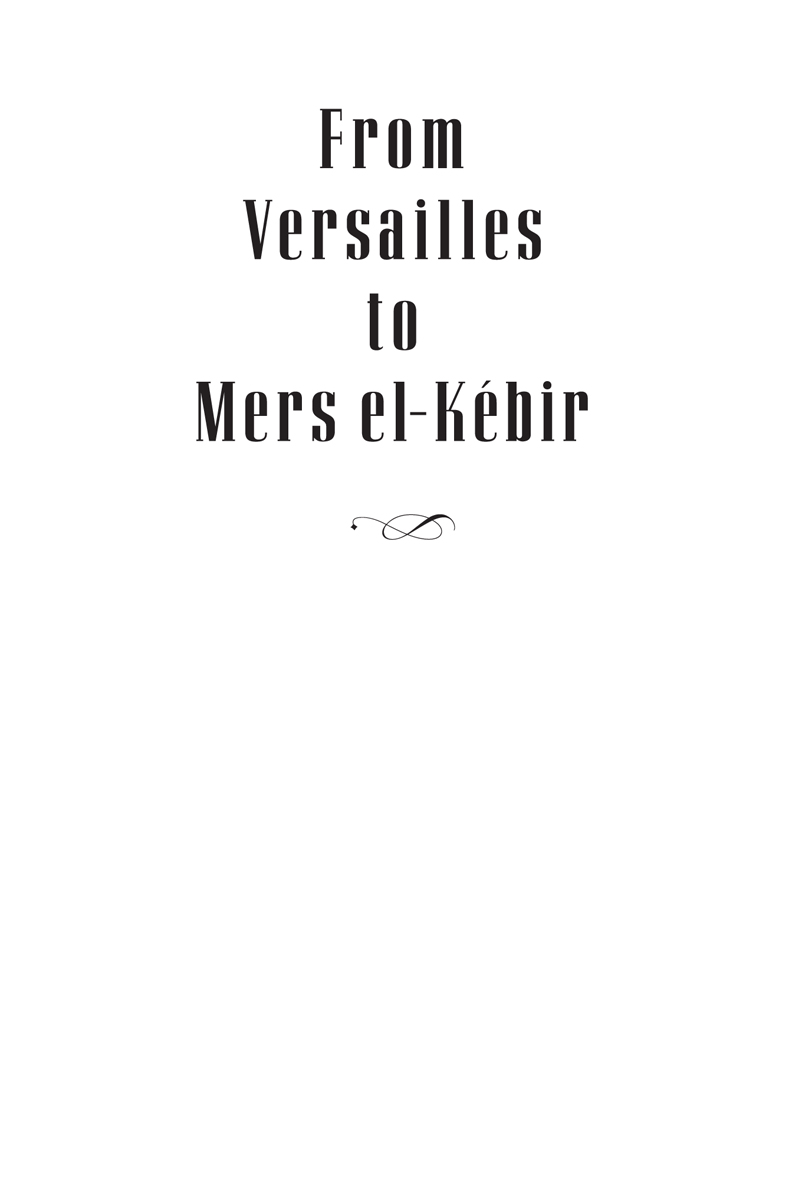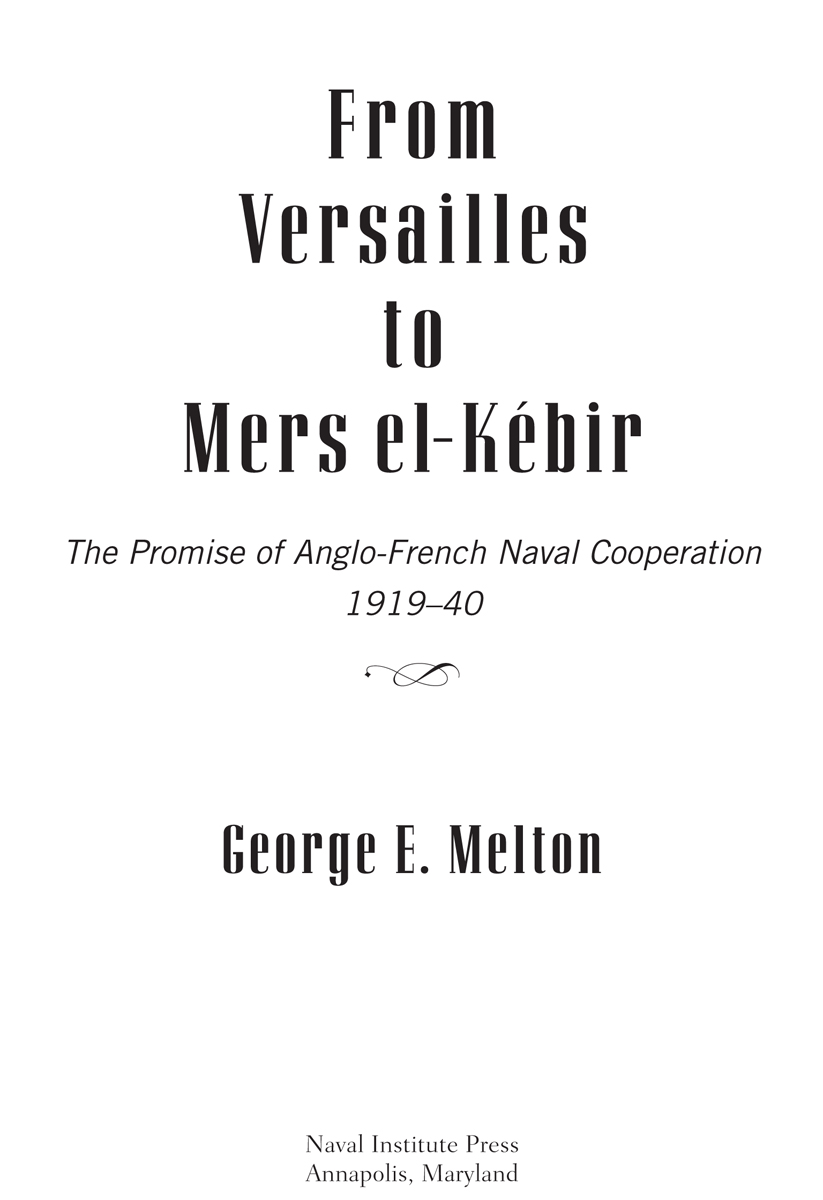Melton - From Versailles To Mers El-K{Acute}Ebir : The Promise Of Anglo-French Naval Cooperation, 1919-40
Here you can read online Melton - From Versailles To Mers El-K{Acute}Ebir : The Promise Of Anglo-French Naval Cooperation, 1919-40 full text of the book (entire story) in english for free. Download pdf and epub, get meaning, cover and reviews about this ebook. City: New York, year: 2015, publisher: Naval Institute Press, genre: History. Description of the work, (preface) as well as reviews are available. Best literature library LitArk.com created for fans of good reading and offers a wide selection of genres:
Romance novel
Science fiction
Adventure
Detective
Science
History
Home and family
Prose
Art
Politics
Computer
Non-fiction
Religion
Business
Children
Humor
Choose a favorite category and find really read worthwhile books. Enjoy immersion in the world of imagination, feel the emotions of the characters or learn something new for yourself, make an fascinating discovery.
From Versailles To Mers El-K{Acute}Ebir : The Promise Of Anglo-French Naval Cooperation, 1919-40: summary, description and annotation
We offer to read an annotation, description, summary or preface (depends on what the author of the book "From Versailles To Mers El-K{Acute}Ebir : The Promise Of Anglo-French Naval Cooperation, 1919-40" wrote himself). If you haven't found the necessary information about the book — write in the comments, we will try to find it.
Abstract: This is a ground-breaking study in Anglo-French naval relations after 1919 as they related to European diplomatic currents between the two World Wars, and to the balance of global naval power before World War II until the summer of 1940. The regional focus is on the Mediterranean, the only area where British and French naval power could be combined to support their diplomatic agenda and to restrain the weakest of the three Axis powers. In broader focus, the study suggests that shifting currents in the balance of global naval power left both the French and British fleets overextended in the late 1930s, so that their concluding an entente was their only option to redress the strategic imbalance. The book is a study of the troubled courtship between the two naval staffs leading to the conclusion in early 1939 of a naval Entente. The Entente enabled London and Paris to distribute their naval power in the Mediterranean to neutralize Italy and Japan and to combine their naval power in the Atlantic against the Kriegsmarine. But that alliance was not an altogether happy one, as the global defense imperatives of the Admiralty frustrated the regional ambitions of the Rue Royale intent upon unleashing combined Anglo-French naval power against Italy to seize control of the Mediterranean early in the war. The study concludes that the Entente enjoyed its greatest success in terms of naval operations in the Atlantic against German surface raiders and U-boats, and that the British attack upon the French squadron at Mers el-KEbir was more a product of the 1940 Franco-German-Italian armistices that of accumulated tensions in the Entente. Finally, the study concludes with the view that the attack upon the French fleet at Mers el-KEbir was a tactical failure and a strategic blunder that burdened the subsequent war effort and created a naval balance more hostile than that prior to the attack, and that the outcome of the operation demanded a carefully crafted cover-up that twisted the facts and concealed from the public the failure of the operation
Melton: author's other books
Who wrote From Versailles To Mers El-K{Acute}Ebir : The Promise Of Anglo-French Naval Cooperation, 1919-40? Find out the surname, the name of the author of the book and a list of all author's works by series.

